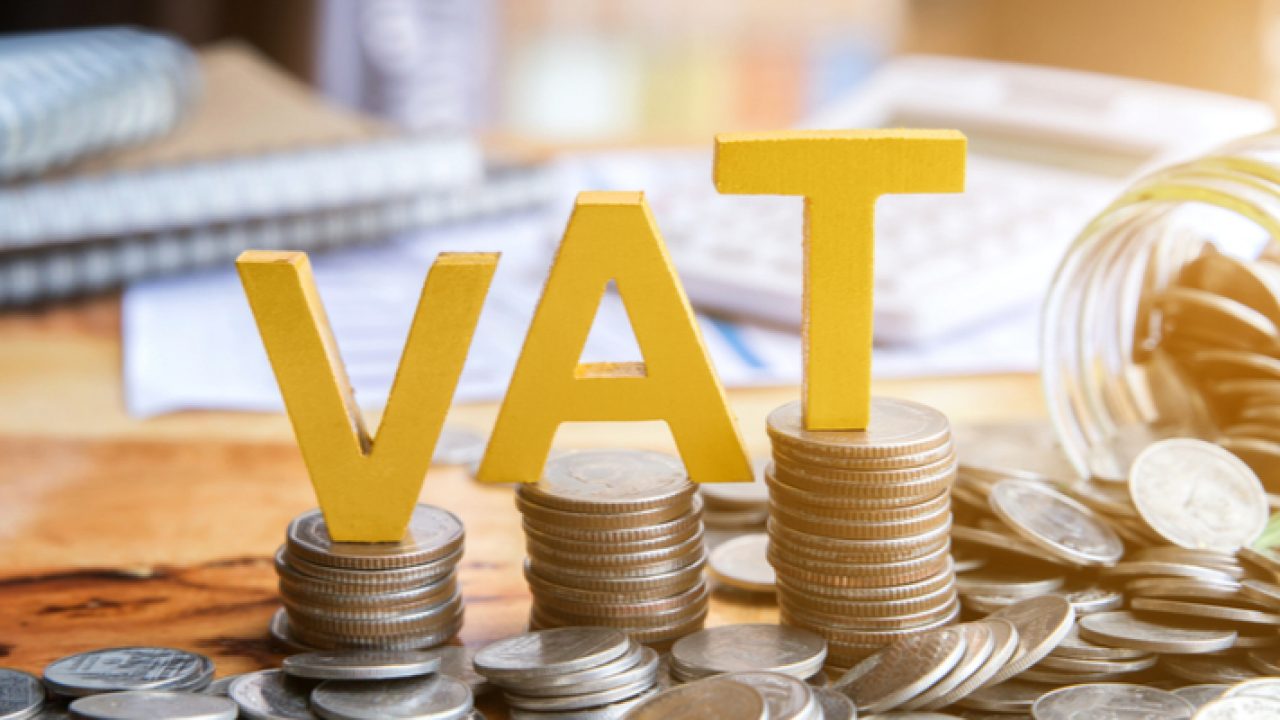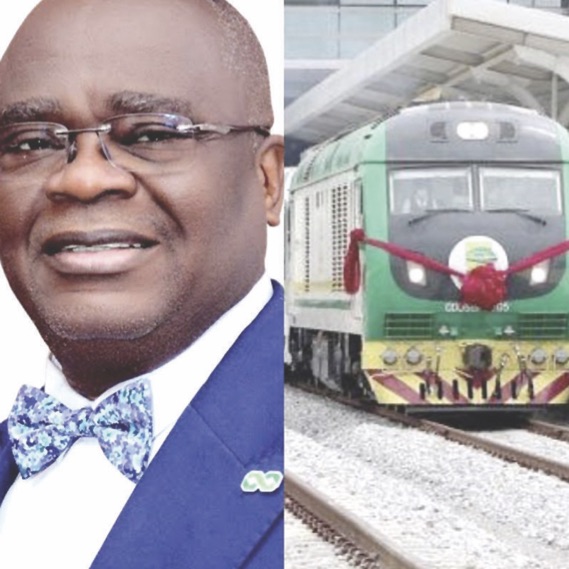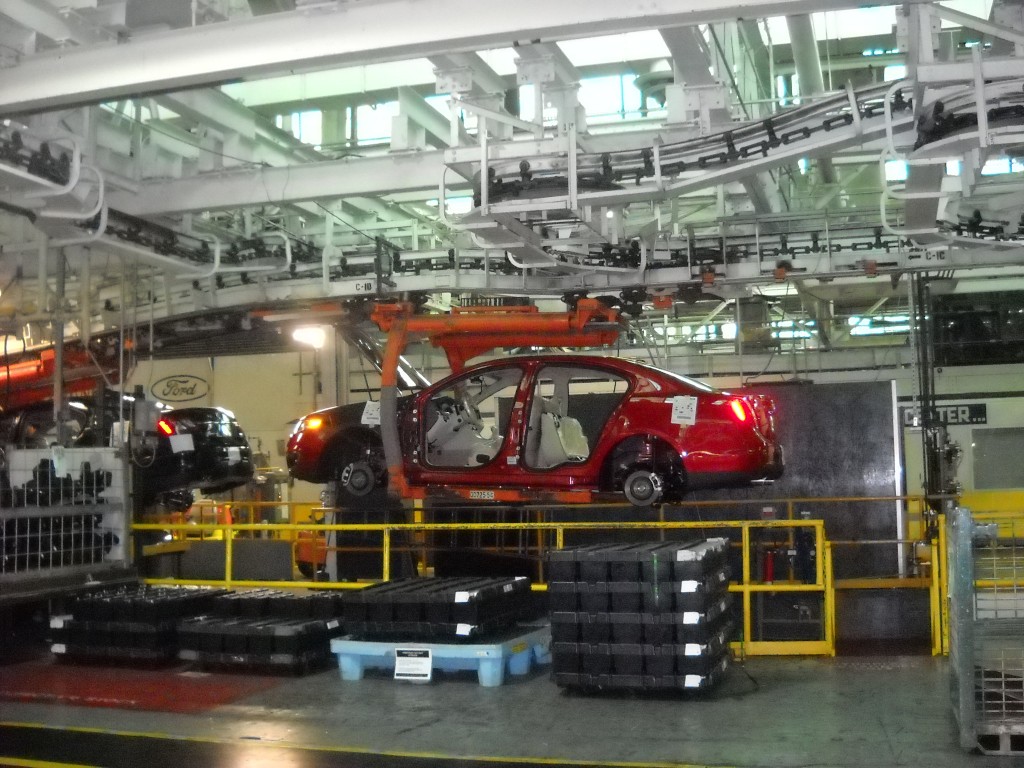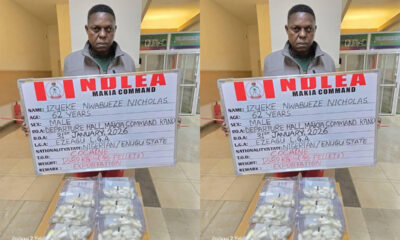Business
Kano beats South East in VAT collection

Kano State collected more money as Value Added Tax (VAT) than the entire South East zone in the first eight months of 2021, an exclusive data obtained by Daily Trust show.
Records of VAT receipts from Federal Inland Revenue Services (FIRS) seen by Daily Trust indicate that the state collected N24.4bn, ahead of the five south-eastern states with accumulated collection of N20bn.
The data further revealed that Kaduna State with N19bn accrual also did better than Akwa Ibom (N9.3bn), Bayelsa (N13bn), Delta (N13bn), Edo (N9bn), and Ogun (N11bn).
For instance, Kaduna’s N19.8bn is higher than the combined collection of Abia, Cross River, Osun, Ekiti, Ondo and Imo.
Abia, according to the chart, collected N2.2bn representing 0.22%; Cross River collected N1.9bn or 0.19%; Osun collected N2.07bn or 0.20; Ekiti made N6.2bn or 0.62; Ondo collected N4.8bn or 0.48, while Imo collected 1.01bn or 0.10 %.
READ ALSO:
- Thousands dump APC for PDP in Benue, apologize to Gov Ortom
- Buhari has a duty to release Nnamdi Kanu, no need to beg him – Nzuko Ndigbo
- Oyo Muslims threaten to sue over use of Hijab in public schools
Yobe in the North East collected N9.3bn rubbing shoulders with Akwa Ibom (N9.3bn), Edo (N9bn), Ebonyi (N7.2bn) and Ekiti (N6.2bn).
Lagos and the FCT, combined, contribute 65.22% of the total, while all the remaining 35 states contribute 34.78 percent of the total.
This revelation is coming amidst VAT row between the federal government and some states, and allegations that some states, majorly in the North, benefit more than what they contribute to the central pool.
The statics show that Lagos is on top of the chart with 41.5 percent of the total VAT amounting to N421.2bn while Zamfara collected the least recording, N762.5m or 0.08 percent of the total sum.
Lagos is followed by the FCT which collected N241bn or 23.74 %; Rivers collected N92.3bn or 9.09 % while Oyo followed with N61bn representing 6.01%.
Other top performers in the chart are Kano with N24.4bn or 2.40% and Kaduna with N19.8bn or 1.95%.
However, in spite of Zamfara, a state in the North West recording the least performance, more northern States performed better than the southern states as the figure indicated.
Despite the crisis in some of the North East states, the region collected a total of N27.7bn compared to N21bn collected by the south-eastern region of the country.
READ ALSO:
- Toyota rolls out new Corolla in Abuja (plus photos)
- Army will engage in war against bandits – COAS
- Desist from killing innocent people, IPOB warns unknown gunmen
Exclusive of Lagos, the other South West states collected a total of N85.8bn only while the North East and North West, which have been heavily bedevilled by insurgency and other security challenges, have collected N86.5bn within the same period.
With the exception of Lagos (N421.2bn), Rivers (92.3bn), Oyo (N61bn), Kano (N24bn) and Kaduna (19bn) most states have posted an average performance lower than N10bn.
How VAT pitched southern, northern states
A verdict by a Federal High Court in Rivers on August 9, 2021, on who has the power to collect VAT favoured the state government; a development seen as a victory for those clamouring for decentralised collection.
Daily Trust reports that both Rivers and Lagos had sued the federal government over the continued collection of VAT by the FIRS.
The controversy spiked after a meeting of the Southern Governors Forum (SGF) endorsed the position of Lagos and Rivers and insisted on allowing every state to collect its VAT revenue individually.
Members of the Northern Governors Forum (NGF) shot back at their southern counterparts, saying the southern governors were confusing the value-added tax (VAT) with sales tax.
The governors noted that the reason Lagos would account for 50 percent of VAT collection was that most telecommunication companies, banks, manufacturing and other trading activities had their headquarters in the state.
“VAT is being confused by these state governments as a sales tax. If every state enacted its own VAT Law, multiple taxations will result in increases in prices of goods and services and collapse in interstate trade. VAT is not a production tax like excise, but terminal tax which is paid by the ultimate consumer,” chairman of the forum, Governor Simon Lalong had said.
READ ALSO:
- I’m fed up with the society, Shola Subair cries out
- Judge Bars Police, DSS, Other Security Agencies from Blocking, Making Arrests in Court Premises
- Oluwo Urges Yoruba Monarchs, Elders to meet Buhari over Sunday Igboho
‘Claim VAT sharing benefits northern states more than the southern erroneous’
An economist and a former presidential candidate, Mr. Gbenga Olawepo-Hashim, said those who have “managed the information about the VAT wars have created the impression that the present distribution benefits the northern states more than the southern states.
“They try to make it look like the VAT is part of the ‘hegemonic domination’ of the North. Many commentators hardly look at the data before they hit their keyboards online. Many swallowed hook line and sinker very obvious lies.”
Olawepo-Hashim argued that apart from Lagos, Rivers and the FCT who benefit from the fact that they host the headquarters of major economic, political and oil-related institutions, most states apart from Oyo are doing badly in VAT generation and a lot of southern states are woeful.
“Most states, whether they are in the North or South are doing badly in production of goods and services except for Lagos, Rivers, Oyo, Kano and Kaduna states. The present centrally collected VAT which is then distributed subsidizes everybody,” he noted.
He maintained that in comparison to eastern states, Kaduna, Kano and Katsina are doing better than Abia, Anambra, Imo, and Enugu, adding that based on available data in the past eight months, total VAT generated in Abia was N2.290b, Anambra -N5.938b, Imo -N1.941 compared to Kaduna -N18.262b and Kano -N24.492b.
“Conversely, when it came to distribution, Abia State got N20.020b for generating N2billion. Abia got 10 times what it contributed whereas Kaduna and Kano did not get as much as twice what they contributed. Lagos, Rivers and Oyo got lower.
Similarly, President of Arewa Youth Consultative Forum (AYCF), Alhaji Yerima Shettima in a chat with Daily Trust said he was not surprised with the figure, insisting the North is not doing badly as it is being portrayed in the VAT war.
He said, “We are not good at talking too much. We are more real and more practical. If there is any region who believes more in Nigeria is the Northern part of this country that believes we must work together.
“When Wike started the issue, some of us were shocked. The man who believes he wants to be a national leader, a nationalist, came up with that idea, making it as if he is fighting the North. Some of us took his pronouncements at that time very personal because the way he presented it was funny.
“The truth of the matter is that we must try as much as possible to discourage what will disunite us. Let us promote things that would unite us. Together, we can do better.
READ ALSO:
- Atiku hails Davido for raising funds for charity
- Nine persons kidnapped in Kwara, police rescue 7
- Davido neglected me in my time of need but donated N250m to orphanages — Baba Fryo
“There is no region in this country that has nothing to bring to the table. But because you have a system that encourages people to only eye the oil and as a result of this out of 1001 things we have on the ground in terms of mineral resources, today we are receiving a lot of abuses and insults from people. We could have done better if we were running a regional system of government where all regions will go back and harness their resources, then pay 13 percent to the centre. These arrogances and abuses on our sensibilities as a nation would not come to play anymore,” he said.
States will bear the brunt of decentralised collection – Experts
Fiscal Policy Partner and Africa Tax Leader at the PriceWaterCoopers (PwC), Taiwo Oyedele said if the right to collect VAT is given to states, “the biggest losers will be the states except for Lagos. A few states like Kano, Rivers, Oyo, Kaduna, Delta and Katsina may experience minimal impact, while at least 30 states, which account for less than 20 percent of VAT collection will suffer significant revenue decline.
“The federal government may be better off given that FCT generates the second-highest VAT (after Lagos) in addition to import and non-import foreign VAT,” he said.
Commenting, Ogbeide E. Benjamin, a tax expert and former chairman, Chartered Institute of Taxation of Nigeria (CITN), Abuja Chapter, said, “The impact of this judgment on the finances of the states will be enormous.”
According to him, “VAT is consumption-based and on several items, some of which are outlawed in some states. I believe the country stands to profit by allowing states to administer VAT. By this, states will be further encouraged to scale up their economic drive to attract more foreign direct investments and local investments since they will be the ones to get the VAT benefits.”
Daily Trust
Business
CBN Policies, Foreign Inflows Drive Naira to Two-Year Peak

CBN Policies, Foreign Inflows Drive Naira to Two-Year Peak
Nigeria’s naira has extended its recent rally, trading at one of its strongest levels against the U.S. dollar in nearly two years, supported by sustained foreign portfolio inflows, tighter liquidity management, and targeted policy interventions by the monetary authorities.
A macroeconomic update by CardinalStone shows that the local currency has appreciated 6.9 per cent year-to-date at the official foreign exchange market, closing at ₦1,347.78/$—its strongest performance since early 2024. The appreciation reflects improved FX liquidity and growing confidence in the official trading window.
Despite the gains, a gap persists between the official and parallel markets. However, the premium narrowed from about 5.7 per cent to roughly 3.2 per cent following renewed foreign exchange interventions by the Central Bank of Nigeria. According to CardinalStone, the compression of the spread indicates stronger liquidity conditions in the official market, reducing incentives for speculative trading and arbitrage.
As part of efforts to further stabilise the FX market, the CBN recently authorised licensed Bureau de Change (BDC) operators to access foreign exchange from approved dealers at prevailing market rates, subject to a weekly cap of $150,000 per BDC and strict Know-Your-Customer (KYC) requirements. Under the framework, operators must sell unused FX balances within 24 hours, limit cash transactions to 25 per cent of total trades, and settle transactions through licensed financial institutions.
READ ALSO:
- Edo Governor Okpebholo Names Mercy Johnson-Okojie Special Adviser
- Many Feared Dead as Suspected Lakurawa Militants Attack Kebbi Communities
- AMAC Polls Shock: Another PDP Candidate Withdraws from FCT Race, Backs APC
With 82 licensed BDCs currently operating, CardinalStone estimates that potential FX supply to the segment could rise to about $50 million monthly. Although this remains significantly below pre-pandemic levels, the renewed supply has helped ease retail FX demand pressures and compress the premium in the parallel market.
While foreign inflows have strengthened the naira, analysts caution that continued appreciation could prompt profit-taking by offshore investors. CardinalStone estimates outstanding foreign portfolio investment (FPI) exposure at between $12 billion and $14 billion, noting that Nigeria’s carry trade remains one of the most attractive across emerging and frontier markets.
The firm added that assuming many investors entered the market at around ₦1,500/$, a move toward ₦1,200–₦1,250/$ could deliver over 22 per cent FX gains on currency alone. Such gains could heighten the risk of portfolio rebalancing or exits, particularly as political and election-related uncertainties begin to build.
Ahead of the latest meeting of the Monetary Policy Committee, analysts describe the macroeconomic signals facing policymakers as mixed. Inflation has started to moderate, while short-term interest rates have converged near 22 per cent, about 500 basis points below the 27 per cent Monetary Policy Rate (MPR).
However, the CBN has signalled low tolerance for excess liquidity, intensifying Open Market Operations (OMO) issuances and keeping the Standing Deposit Facility (SDF) attractive to absorb surplus funds and prevent renewed inflationary pressure. Analysts also point to concerns around election-related liquidity, which is expected to intensify in the second half of the year, with over 75 per cent of projected 2026 liquidity expected in the first half.
Looking ahead, CardinalStone expects the CBN to hold the policy rate while adjusting the asymmetric corridor to align SDF rates with OMO yields and preserve the attractiveness of naira assets for foreign investors. Forward market indicators suggest a softer currency path later in the year, with the naira projected to trade within a ₦1,350–₦1,450/$ range in 2026, despite the recent rally.
CBN Policies, Foreign Inflows Drive Naira to Two-Year Peak
Railway
Railway track vandalism: Urgent need for laws prohibiting scrap/metal picking to protect critical assets

Railway track vandalism: Urgent need for laws prohibiting scrap/metal picking to protect critical assets
By Onyedikachi Stanley Onovo
The wanton destruction and theft of Nigeria’s railway infrastructure and other critical public assets represent one of the gravest threats to national development and security.
Across the nation—from the Warri-Itakpe line to Abuja-Kaduna, the Eastern and Western Districts, Lagos-Ibadan, and throughout the Northern network—vandals systematically dismantle tracks, steal armoured cables, and pillage essential equipment. This crisis demands an immediate and robust legislative response.
The unending menace
The vandalism is perpetrated by a network of individuals, from local miscreants (“iron condemn”) to organised merchants who purchase and export stolen materials. Security reports and countless arrests underscore the scale of the problem:
In December 2023, a private security firm arrested 13 suspects for vandalising Abuja Mass Transit Rail assets. The suspects were said to be casual workers engaged by a Chinese company working on the railways, but said to have used the opportunity to steal the materials.
On June 2024, The Cable reported that the Nigerian Army arrested 47 suspected rail track vandals in Kaduna State.
In October 2025, police arrested a suspect vandalising railway electrical installations also in Kaduna State.
Radio Nigeria in December 2025 announced the arrest of three persons in Kwara State for vandalizing and stealing Railway clips and nuts in Offa.
In May 2021, TVC reported some individuals, including one Ejike Okeke were apprehended in Enugu with stolen sleepers and tracks.
On the 30th of January 2026 the Nigerian Television Authority reported that the NSCDC, Bauchi State Command arrested five suspects and intercepted a truck carrying vandalized railway tracks.
This relentless assault has plagued successive management of the Nigerian Railway Corporation (NRC), defying conventional counter-strategies.
A transformative leadership initiative
A pivotal shift began under the administration of President Bola Ahmed Tinubu with the appointment of Dr. Kayode Opeifa as Managing Director/CEO of the NRC.
Dr. Opeifa introduced a fundamental paradigm shift by redesignating what was carelessly termed “scrap” as “unserviceable critical national assets.”
This reframing has driven a transformative partnership with experts to manage these assets responsibly. The era of controversial public auctions—which often saw valuable national iron assets disappear, depriving Nigeria of materials for repurposing and industrialisation—is now over.
Today, a systematic process ensures these materials are reused or responsibly processed, with revenue reinvested into the Corporation. This home-grown solution is a commendable breakthrough that proves Nigerians can effectively solve national challenges.
The critical legislative gap: Targeting the market
While the NRC’s internal reforms are laudable, they alone cannot stem the tide. The root enabler of this vandalism is the thriving, unregulated market for stolen metal. To kill the vandal’s incentive, we must eradicate the demand.
Therefore, there is an urgent need for the National Assembly to enact legislation that:
1. Prohibits the buying and selling of any railway materials (serviceable or unserviceable) on the open market.
2. Imposes severe penalties on buyers and merchants of vandalised public assets, effectively targeting the economic drivers of this crime.
3. Mandates stringent federal regulation of all scrap metal dealers nationwide.
THE SCRAP DEALER NEXUS
The opaque operations of scrap dealers are a major concern. Their compounds are often shrouded, hiding the provenance of their materials. This unregulated space fuels not only railway vandalism but also community theft—from iron crossing bars in homes to street lamp holders.
Trailers loaded with questionable materials move freely from cities and expressways to unknown destinations. Without regulating this sector, our fight against vandalism remains superficial.
CONCLUSION
The partnership and innovation under Dr. Opeifa’s leadership at the NRC demonstrate what is possible with commitment and vision.
However, to secure our railways, power installations, and other critical assets, we must complement this institutional resolve with strong, deterrence-based law. Legislation that dismantles the market for stolen public property is not an option; it is a national imperative for Nigeria’s security and industrial future.
*Onyedikachi Stanley Onovo, Ph.D
FCAI, ANIPR
onyedikachionovo1@gmail.com excellentdikachi@yahoo.com
Auto
MOMAN, ALCMAN Partner BKG to Drive Nigeria’s Shift from Auto Imports to Industrial Production

MOMAN, ALCMAN Partner BKG to Drive Nigeria’s Shift from Auto Imports to Industrial Production
In what industry stakeholders view as a decisive move toward industrial rebirth, BKG Exhibitions Limited has entered into a strategic partnership with the Motorcycle Manufacturers Association of Nigeria (MOMAN) and the Automotive Local Content Manufacturers Association of Nigeria (ALCMAN) to accelerate local automotive manufacturing and reduce the country’s heavy reliance on imports.
The alliance, formalised in Lagos, signals a coordinated private-sector effort to reposition Nigeria’s automotive ecosystem from an import-dependent market to a production-driven industrial base capable of delivering value addition, technology transfer, and large-scale employment.
For decades, Nigeria’s automotive sector has been dominated by the importation of fully built vehicles and, more recently, the assembly of semi-knocked-down (SKD) and completely knocked-down (CKD) kits.
While these models generated commercial activity, stakeholders argue they failed to build deep industrial capacity or strengthen indigenous engineering expertise.
The new partnership seeks to change that narrative by transforming trade exhibitions into structured industrial platforms that connect manufacturers with policymakers, institutional buyers, investors, and international technical partners.
A senior executive at BKG Exhibitions said the collaboration represents a deliberate shift in strategy.
“Exhibitions must go beyond passive marketplaces. They must become engines of economic transformation where Nigerian manufacturers secure contracts, attract capital, and demonstrate production competence,” he said, noting that Nigeria already possesses strong demand but lacks a coordinated ecosystem to convert that demand into domestic output.
“Nigeria remains one of Africa’s largest mobility markets, driven by rapid urbanisation, a growing youth population, and expanding last-mile logistics services.
“Motorcycles and tricycles play a critical role in urban transport, agriculture distribution, and the fast-growing delivery economy.
“However, a substantial portion of these vehicles and their components are imported, placing pressure on foreign exchange and limiting domestic industrial growth.”
MOMAN President Rev. Lambert Ekewuba emphasized that strengthening local production would go beyond import substitution.
“When we manufacture locally, we create jobs, retain capital, and build the technical foundation for advanced automotive engineering,” he said.
ALCMAN Chairman, Chief Anselm Ilekuba, stressed the importance of developing a resilient components ecosystem, describing it as the backbone of any successful automotive industry.
“No country becomes an automotive powerhouse without first nurturing strong supplier networks. Nigeria must empower small and medium-scale enterprises producing metal parts, plastics, electrical systems, and other inputs,” he said.
Under the alliance, future exhibitions will feature dedicated pavilions showcasing Nigerian-made components and vehicles, offering manufacturers direct access to government agencies, transport operators, and regional distributors.
Analysts believe such curated exposure could gradually shift procurement patterns toward locally produced alternatives.
Beyond the domestic market, the partnership aims to position Nigeria as a manufacturing hub serving West and Central Africa, leveraging opportunities under the African Continental Free Trade Area (AfCFTA).
Industry leaders say expanding export capacity will depend on strengthening standards, financing mechanisms, and technical capability.
The alliance also plans coordinated advocacy for policies that support localisation, including improved access to financing, reduced duties on industrial machinery, technical training aligned with modern production systems, and procurement frameworks favouring locally manufactured goods.
Economists argue that a revitalised automotive manufacturing base could stimulate growth across steel, petrochemicals, logistics, warehousing, and tooling industries, reinforcing the sector’s role as a catalyst for broader industrialisation.
Coming at a time when Nigeria is intensifying efforts to diversify its economy away from oil dependence, stakeholders say the success of this alliance could mark a turning point — shifting the country from being one of Africa’s largest automotive consumption markets to an emerging centre of production, innovation, and regional trade.
-

 International1 day ago
International1 day agoCanada Opens New Express Entry Draw for Nigerian Workers, Others
-

 News2 days ago
News2 days agoKorope Drivers Shut Down Lekki–Epe Expressway Over Lagos Ban (Video)
-

 Health2 days ago
Health2 days agoRamadan Health Tips: Six Ways to Stay Hydrated While Fasting
-

 Politics8 hours ago
Politics8 hours agoPeter Obi Launches ‘Village Boys Movement’ to Rival Tinubu’s City Boys Ahead of 2027
-

 News14 hours ago
News14 hours agoPolice to Arrest TikToker Mirabel After She Recants False Rape Claim
-

 metro1 day ago
metro1 day agoOsun Awards 55.6km Iwo–Osogbo–Ibadan Road Project to Three Contractors
-

 Entertainment2 days ago
Entertainment2 days agoActress Destiny Etiko Breaks Silence on Alleged Nollywood Betrayal
-

 International16 hours ago
International16 hours agoEpstein, Ex-Israeli PM Named in Alleged Profiteering From Boko Haram Crisis















